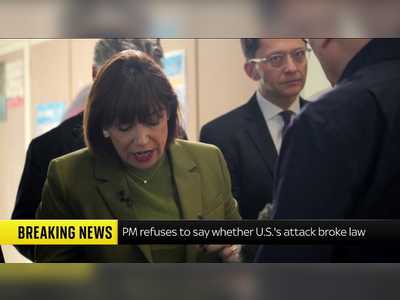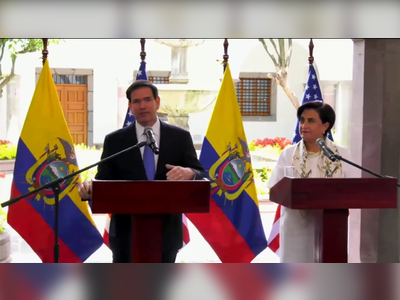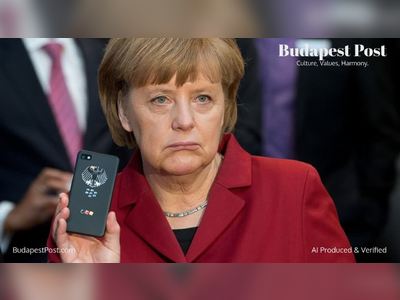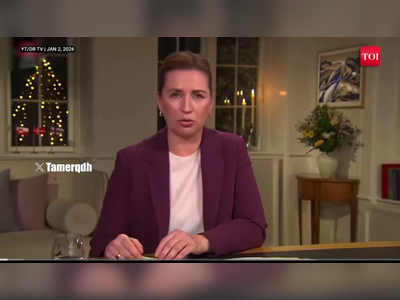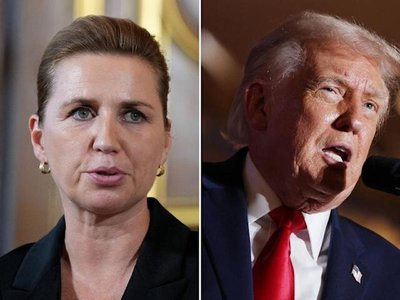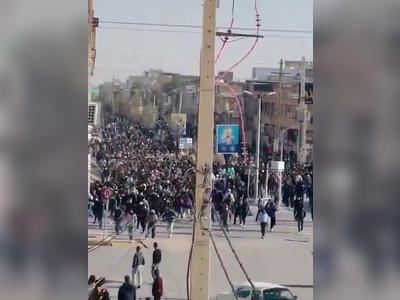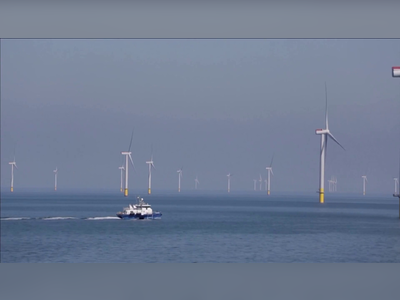
Romanian Constitutional Court Bars Far-Right Candidate Călin Georgescu from Presidential Election
The Constitutional Court's ruling follows a decision by the Central Electoral Bureau to disqualify Georgescu from the upcoming elections.
Romania's Constitutional Court has ruled that Călin Georgescu, the far-right candidate, is ineligible to participate in the presidential elections set for May 4 and 18, 2025. The decision was made public on Tuesday and came after the Central Electoral Bureau (BEC) disqualified Georgescu on Sunday.
The ruling was unanimous among the judges.
Călin Georgescu, who presents himself as an independent candidate and has been associated with pro-Russian and fascist ideologies, gained significant attention by winning the first round of the presidential election on November 24, 2024. However, allegations of Russian interference prompted the Constitutional Court to nullify that election and mandate a new process.
Following this ruling, Georgescu announced his intention to run again, claiming he was respecting the will of the people, but his candidacy was rejected by the BEC by a vote of 10 to 4. The BEC stated that it would take into account the previously established legal standings by the Constitutional Court, emphasizing that candidates for the presidency must respect the constitution and defend democracy.
Georgescu's disqualification from the elections is definitive, with no further legal options available to overturn the ruling.
Supporters gathered outside the courthouse in Bucharest, where a heightened presence of riot police was deployed to prevent any violence reminiscent of the clashes that occurred outside the BEC building the previous Sunday.
In a statement, Georgescu characterized his mission as complete, claiming he had "unveiled the demon" of the current system's refusal to accept outsiders, and urged his supporters to choose candidates based on their conscience.
Tensions escalated as several individuals were reported injured during confrontations between Georgescu's supporters and riot police in Bucharest.
Separately, Georgescu is currently facing criminal proceedings related to the promotion of fascist organizations, incitement against the constitutional order, and allegations of illegal campaign financing, which resulted in a two-month period of state supervision.
Several of his supporters have been arrested on charges including attempted diversion and treason.
In response to the BEC's decision, George Simion, the leader of the far-right parliamentary party AUR, is also under investigation following the release of a now-removed Facebook video where he suggested the election rerun and the exclusion of the leading candidate constituted a coup that should be punished.
The political landscape in Romania reflects ongoing divisions, particularly regarding extremism and democratic values.
The ruling was unanimous among the judges.
Călin Georgescu, who presents himself as an independent candidate and has been associated with pro-Russian and fascist ideologies, gained significant attention by winning the first round of the presidential election on November 24, 2024. However, allegations of Russian interference prompted the Constitutional Court to nullify that election and mandate a new process.
Following this ruling, Georgescu announced his intention to run again, claiming he was respecting the will of the people, but his candidacy was rejected by the BEC by a vote of 10 to 4. The BEC stated that it would take into account the previously established legal standings by the Constitutional Court, emphasizing that candidates for the presidency must respect the constitution and defend democracy.
Georgescu's disqualification from the elections is definitive, with no further legal options available to overturn the ruling.
Supporters gathered outside the courthouse in Bucharest, where a heightened presence of riot police was deployed to prevent any violence reminiscent of the clashes that occurred outside the BEC building the previous Sunday.
In a statement, Georgescu characterized his mission as complete, claiming he had "unveiled the demon" of the current system's refusal to accept outsiders, and urged his supporters to choose candidates based on their conscience.
Tensions escalated as several individuals were reported injured during confrontations between Georgescu's supporters and riot police in Bucharest.
Separately, Georgescu is currently facing criminal proceedings related to the promotion of fascist organizations, incitement against the constitutional order, and allegations of illegal campaign financing, which resulted in a two-month period of state supervision.
Several of his supporters have been arrested on charges including attempted diversion and treason.
In response to the BEC's decision, George Simion, the leader of the far-right parliamentary party AUR, is also under investigation following the release of a now-removed Facebook video where he suggested the election rerun and the exclusion of the leading candidate constituted a coup that should be punished.
The political landscape in Romania reflects ongoing divisions, particularly regarding extremism and democratic values.
AI Disclaimer: An advanced artificial intelligence (AI) system generated the content of this page on its own. This innovative technology conducts extensive research from a variety of reliable sources, performs rigorous fact-checking and verification, cleans up and balances biased or manipulated content, and presents a minimal factual summary that is just enough yet essential for you to function as an informed and educated citizen. Please keep in mind, however, that this system is an evolving technology, and as a result, the article may contain accidental inaccuracies or errors. We urge you to help us improve our site by reporting any inaccuracies you find using the "Contact Us" link at the bottom of this page. Your helpful feedback helps us improve our system and deliver more precise content. When you find an article of interest here, please look for the full and extensive coverage of this topic in traditional news sources, as they are written by professional journalists that we try to support, not replace. We appreciate your understanding and assistance.

